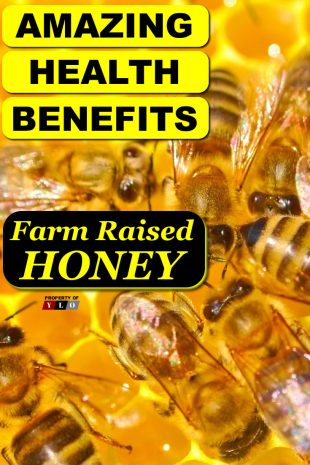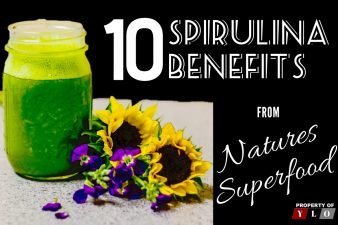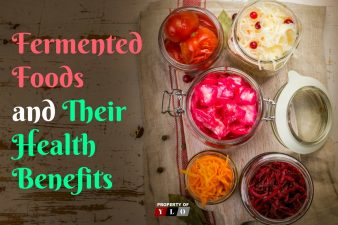When it comes to Honey Benefits For Your Health the list is extensive. Honey has been harvested and used by humans for thousands of years. Not only is honey used because of its sweet taste, people have discovered a myriad of benefits associated with its use. While some are concerned about the high fructose content it contains, the advantages far outweigh the concerns.
Apart from being an excellent sugar-substitute, honey is best for a nutrient-dense diet as well.
Natural honey consists of:
• 82% sugar
• About 40% fructose (makes up about half of the sugar content)
• Trace amounts of Vitamins and Minerals
• A number of antioxidants&
• The concentration of glucose and fructose vary as well as the Glycemic Index which ranges from low to high depending on the nectar.
Nutritional Information (30g honey)
Calories 91
Carbohydrates 24.7g
Sugar 24.6g
Farm Raised Honey Benefits
1. Contains Antioxidants
Farm honey is rich in antioxidants which play a key role in combating free radicals. Free radicals damage the body cells leading to various serious illnesses such as cancer, and certain degenerative conditions. Honey contains phenol, organic acids, enzymes and flavonoids which protect the body against certain conditions and repairs cells.
It is imperative to incorporate foods that are rich in antioxidants in your diet to ensure proper functioning of the body.
2. A Fantastic Substitute for Sugar
Honey is a much healthier substitute for sugar for those who are off sugar for reasons such as illnesses or preference (health conscious). Although it contains a high amount of fructose, it still makes a better substitute than processed sugar. One of farm honey benefits is that it has been found to lower LDL cholesterol which is good for people living with heart conditions.
However, honey should be used in moderation especially for people living with diabetes since it still causes a rise in blood sugar levels.
3. Controls Blood Pressure and Cholesterol Levels
Honey contributes to controlling blood pressure levels due to certain antioxidant properties. Honey is also recommended for patients living with diabetes and others with blood sugar-related issues because it does not cause a spike in blood sugar levels compared to refined sugar.
Research also shows that honey reduces the bad cholesterol (LDL) levels and raises the good cholesterol (HDL) levels.
To add to the list of benefits it holds for the blood, honey lowers the amount of blood triglyceride levels up to 11%. This is great news for those who wish to substitute white sugar with honey.
4. Possesses Healing Properties
Honey has been used for years to treat burns and wounds and for a good reason. The sweet viscous fluid contains powerful antibacterial and anti-inflammatory properties. Studies show that honey can be sued to treat post-surgery wounds that have turned septic as well as burns. Researchers find honey useful in treating foot ulcers caused by diabetes as well.
Honey is an excellent topical treatment for a number of skin conditions such as psoriasis and eczema. Its healing properties extend to hemorrhoids and even herpes.
5. Used to Treat Coughs in Children
Honey provides a safe and efficient medicine for suppressing coughs in children. There are vast cough drugs that are easily available over-the-counter. These drugs contain chemicals and compounds which may end up having harmful side-effects on a child’s health. Honey provides an all-natural remedy that even researchers have found to be more effective than some of the over-the-counter drugs.

Major Uses of Honey
Because of the numerous farm honey benefits, honey has some major uses;
1. Used to Treating Nausea
Honey makes for an excellent anti-nausea remedy. Whether caused by motion sickness, stomach bug or morning sickness during pregnancy, when combined with ginger and/or lemon, honey is effective in combating nausea.
2. Topical Treatment for Burns and Wounds
Honey makes for an effective treatment for burns and wounds as discussed earlier on. Medihoney is a medical grade honey used by medical practitioners for treatment of various issues. It has been found that dark honey contains more antioxidant properties making it more potent in treating burns and wounds.
3. Used for Stronger Healthier Hair
The uses of honey extend to promoting stronger healthier hair. You do not need to break the bank to have soft luscious hair since honey can do that for you affordably. Simply mix honey with olive oil or other essential oils and apply generously to wet hair. Leave for half an hour and rinse off.
4. Used to Control Blood Sugar Levels
As discussed earlier on, honey makes for a fantastic substitute for sugar. One of the many farm honey benefits is to control blood sugar levels by improving insulin resistance in people living with diabetes. Diabetic patients are advised to use honey in moderation as it also contains a high concentration of fructose.
5. Use Honey for Better Sleep
There are several reasons why you may lack sleep either from insomnia or health-related issues. Well, worry not; honey will help you sleep better. Mix a teaspoon of honey in a glass of whole milk or almond milk and enjoy before bedtime. This method will aid you to have restful sleep no matter the reason for lack of sleep.
Side Effects of Honey
While natural honey is largely safe for consumption, there certain people that are advised to use it in moderation or avoid honey completely.
Diabetics Should Use Honey with Extra Caution
Although honey can be beneficial to people living with diabetes having imbalanced levels of sugar, honey can lead to blood sugar spikes if consumed in large amounts. Therefore, patients living with diabetes are advised to use it cautiously in moderation.
A person with normal blood sugar levels should consume less than 5 teaspoons of honey. Those with diabetes and other blood sugar related issues should have less than that.
Honey Should Not Be Given to Children Less Than 12 Months
Although research findings are not conclusive, honey has been linked to botulism with children aged less than one year. For this reason, it is best not to give honey to infants.
Expectant and Lactating Mothers
Pregnant women and breastfeeding mothers are advised not to use medicinal honey. Although honey in food has been found safe for this class of women.
Allergic Reactions
People who suffer from severe allergies should approach the use of honey with caution. However, it has been found that honey in small doses helps with seasonal allergies. When introduced in small amounts, honey helps build immunity by acting like a vaccination. By introducing small amounts of honey in your system, you build a natural immunity to seasonal allergies.
People who suffer from malabsorption of fructose should also stay clear of honey since it contains a high amount of fructose.

FAQs About Honey
Q: What is honey?
Honey is a sweet, sticky and golden viscous fluid that is produced by bees from the nectar of flowering plants. Honey has long been used for its medicinal and healing properties as well as a sweetener for various foods and beverages. Farm honey benefits are numerous from food, drinks, and medicinal properties.
Q: What are the uses of honey?
For over two millenniums, honey has been used in extensive ways. People have found honey useful for its medicinal properties treating burns, wounds, skin conditions, coughs and foot ulcers. Other uses of honey are regulating blood sugar levels, healing seasonal allergies and aiding in weight loss.
Q: How is honey consumed?
There are many ways to enjoy this liquid sugar. Honey can be used in cooking, to sweeten beverages such as tea and coffee, and can be used to substitute for sugar as well. Use honey on baked foods and pastries and as a spread. When it comes to how to consume honey, it is really up to your taste and preferences because honey is quite versatile.
Q: Is it possible to be allergic to honey?
Food intolerance is always a possibility. If you suspect that you suffer from malabsorption of fructose, eliminate all fructose foods from your diet and reintroduce them slowly. Do this one by one and give a three day monitoring period to see if you will have an allergic reaction.
Q: Where can I get honey?
Honey is easily available and can be purchased from almost all groceries stores and even online. For you to enjoy the full farm honey benefits, aim to acquire honey straight from the farm in farmers markets and organic food stores.
Q: What is Manuka honey?
Manuka honey is farmed from the Manuka tree that is indigenous in Australia and New Zealand. Manuka honey is considered to be one of the best types of honey since it is high in antioxidants and antibacterial properties. It tastes slightly different from regular honey although the uses remain the same. You can get Manuka honey readily available from organic food stores and even online.
Q: Are there other types of honey?
Yes. There are more than 300 types of honey. There are other types of honey that contain up to 100 times more antibacterial properties than others. Unfortunately, the honey that is readily available in drugstores and supermarkets is usually highly processed stripping it of major healing and nutritional properties.
Go for raw, unfiltered honey. You can find this in farmer’s market, co-operatives and organic food stores. Always look out for the seal that certifies the honey as organic.
Q: Which is the best kind of honey?
The best kind of honey is the raw unfiltered one. This contains a higher concentration of antioxidants and antibacterial properties. The darker the honey, the better. Manuka honey is also one of the best kinds of honey.
Q: Should honey be given to children?
Honey is considered to be generally safe for older children but should not be given to children under the age of one year due to the risks associated with it is not considered safe for infants.
Q: What is the best way to store honey?
Store honey away from direct sunlight and near sources of heat such as ovens and heaters. Aim to store honey at 50-70 F.
Q: Can local honey fight allergies?
Raw honey can be used to build immunity to combat seasonal allergies. Honey is used to build immunity by taking it in small doses at a time to avoid an adverse reaction. The theory of this use is yet to be proven scientifically but many people swear by this method. The honey acts as a vaccination thus helping you build immunity against pollen allergies.
Q: Does honey go bad?
Honey can last a very long time if stored properly. In fact, it is one of the few foods that does not go bad.
Q: Does it mean that honey has gone bad if it crystallizes?
When raw honey crystallizes it doesn’t mean that it has gone bad. This is common and can be reversed by placing the container of honey in hot water. Mixing a little bit of it in a hot beverage will also help.
Q: What is raw honey?
Raw honey is honey that has not been filtered, processed or heated. Raw honey is considered to the best type of honey for nutritional and medicinal uses.
What Happens to Your Body When You Start Eating Honey Every Day
Let us know if you have tried any raw honey and how it is working for you. Our readers all are looking for information on what others are trying.




